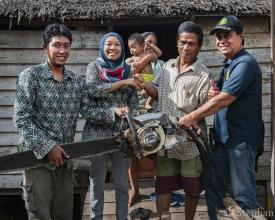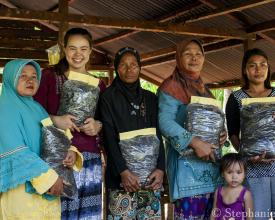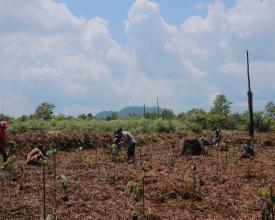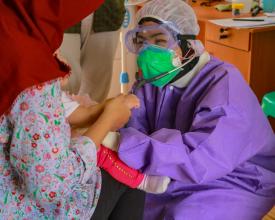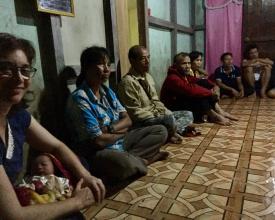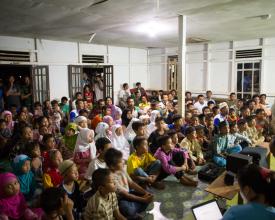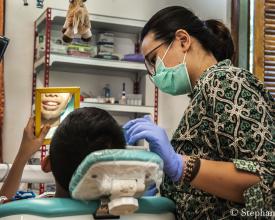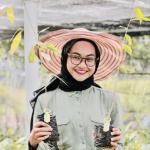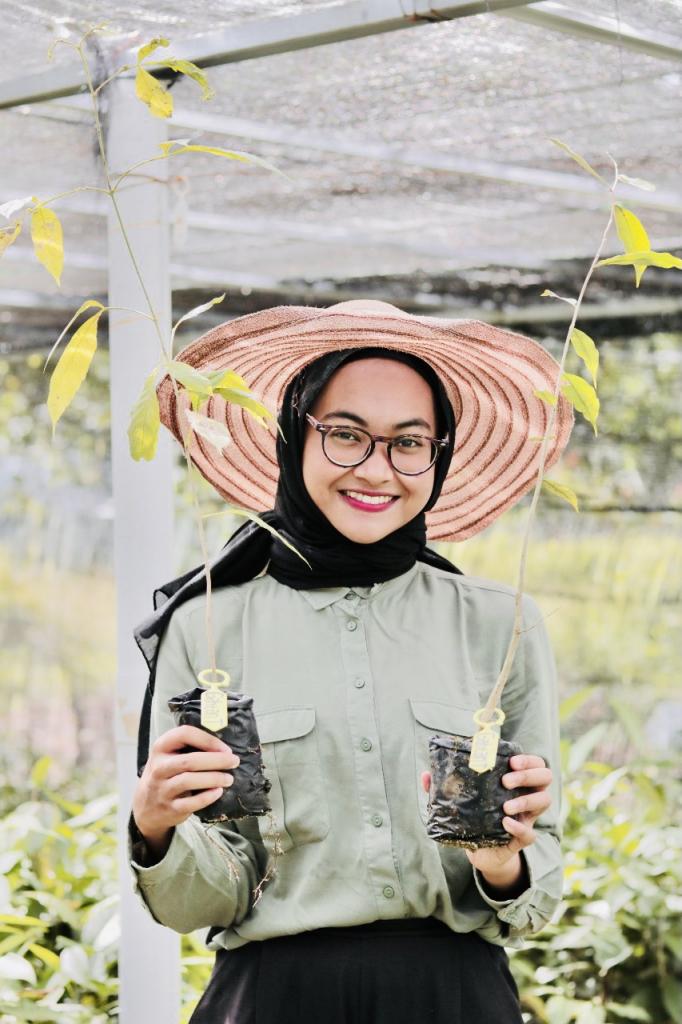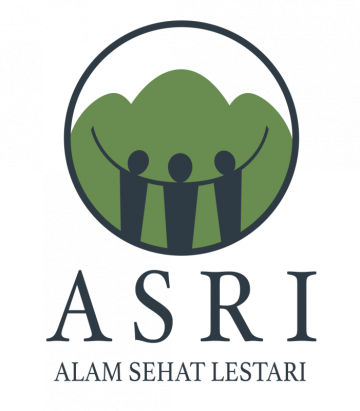
Healthcare Incentives and Alternative Livelihood for Marginalized Communities to Protect Rainforests Safeguarding Orangutan and Other Endangered Wildlife in Indonesian Borneo.
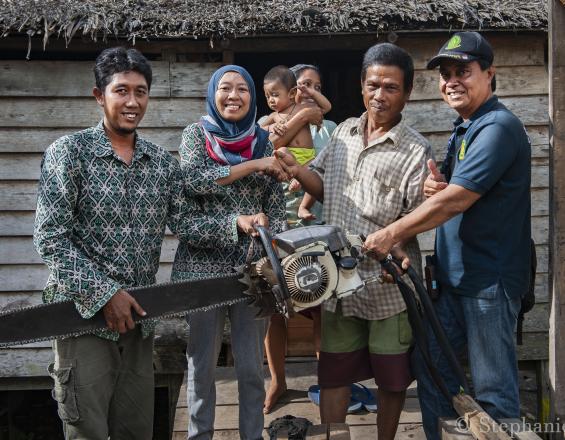
We created an incentive system so that people from villages where there is little or no logging receive discounts up to 70% on their healthcare, and people can pay for healthcare with seedlings or pay with other non-cash payments. So far, we have received more than 106,000 visits from about 36,858 people and received 105,825 seedlings from patients.
All the seedlings that we received are used for reforestation. Until now, we are successfully replanting 273 ha of forest. Through the Chainsaw Buyback, ASRI has brought 207 chainsaws from loggers and helped them to build a sustainable and non-harm business and has protected approximately 50,571 old-growth trees from being cut.
Furthermore, in response to the economic downturn caused by the pandemic,, we launched a Rainforest Stimulus program and supported 65 ex-loggers and farmers through this stimulus program, where they care for seedlings for additional income, resulting in more than 32,500 extra seedlings for reforestation.
Context
Challenges addressed
Rainforest communities are inextricably linked to the forests they steward. Responding precisely to their holistic and integrated solutions for forest regeneration leads to improved human and ecosystem wellbeing. Global reciprocity is an essential aspect of this response as traditional, local, and Indigenous communities protect the remarkable biodiversity, ancient forests, and unique species that benefit us all. Following the communities’ design, ASRI helped facilitate win-win solutions through an interdependent systems approach. The exchange systems that the communities design typically entail the following interdependent elements: healthcare ↔ conservation ↔ livelihood training ↔ education. System linkages are emphasized in the design process.
Location
Process
Summary of the process
Traditional and Indigenous rainforest communities are climate experts and know how to live in balance with rainforest ecosystems. Alam Sehat Lestari (ASRI) uses a grounded anticolonial methodology called Radical Listening to uncover community-designed solutions to protect and regenerate climate-critical rainforests and boundless species diversity while sequestering carbon and supporting human wellbeing. Our unique and adaptive methodology enables us to quickly respond to the community’s needs, to provide the highest quality (health, livelihood, and education) resources. As the ongoing global crisis has revealed, the interdependence between human health and ecosystems is porous; with the current pandemic a symptom of a larger environmental emergency resulting from the overreaching encroachment of humans on nature.
Building Blocks
Radical Listening
Radical Listening initiates a paradigm shift by asking Traditional and Indigenous rainforest communities this simple question. “You are the guardians of a rainforest that is valuable to the health of the whole planet. How might the world community assist you to live in balance with this rainforest as a thank you for your guardianship of it?” Our belief is that communities hold the key to humanity’s longevity. Traditional conservation approaches are often based on punitive measures and seldom linked to human well-being. Our approach is based on reciprocity, and valuing local people and traditional science.
Enabling factors
No intervention from third parties, all local communities (man and woman) have the right to express their opinions during Radical Listening sessions.
Lesson learned
Core to ASRI’s mission is democratising protecting rainforests. Local ownership is key to our approach where all programs, products, and resources are owned by the local communities. ASRI plays a key role in organizing, convening, and supporting rapid development and uptake of interventions that support a just transition to regenerative livelihoods. The iterative and ongoing process of Radical Listening continuously improves programs over time and ensures local ownership and efficacy. Involvement is paramount and integrated throughout the planning, implementation, and ongoing sustainable practices. The in-country staff are 100% nationals, and we prioritize hiring local community members whenever possible.
Resources
Planetary Health
Planetary health examines the ways in which human health is impacted by human-caused disruptions to the Earth’s natural systems. Within that definition is a feedback loop. Anthropogenic environmental changes affect the health of people. At the same time, the way people interact with the natural environment is influenced by their physical, social, and mental well-being and their economic security. This loop reiterates the interconnectedness of human health and environmental systems. It introduces the possibility of designing win-win planetary health solutions that recognize that a change in one system can trigger positive shifts within another. Ecological levers for public health are interventions in the ecosystem or conservation space that have positive outcomes for human health.
Enabling factors
ASRI’s planetary health intervention was done by creating a dual conservation-health program that is able to improve human health and reduce deforestation of rainforests.
Lesson learned
Intensifying community-designed planetary health interventions during the Covid-19 pandemic has enhanced community resilience and prepared people for the future shocks of climate change. We have not just focused on an emergency infectious disease response for communities, but have also invested in a stimulus package for the rainforests to ensure tandem wellbeing and resilience. Increasing food security will have both environmental and human health impacts. Reforestation will decrease zoonotic transfer of diseases and improve ecosystem integrity, which will support human health.
Impacts
Recent impact analysis study of our main site in Indonesian Borneo (Jones et al. PNAS 2020) proved the efficacy of our unique model. Specifically, a $5.2 million in program investment yielded $65.3 million in averted above ground carbon, a near halt of primary forest loss, promoted 21,000 hectares of secondary forest regrowth, 67% reduction in infant mortality, 90% reduction in illegal logging households, and protected habitat for around 3,000 critically endangered orangutans. The study did not count other parties’ contribution towards the impacts. ASRI has been working to support Indonesian government to protect the forests along with other NGOs, so the above achievements are actually a contribution of our strong partnership.
Beneficiaries
ASRI has worked to support Indonesian government to protect Gunung Palung National Park (GPNP) since 2007, and Bukit Baka Bukit Raya National Park (BBBR) since 2018, serving in total about 62,000 beneficiaries of local rainforest communities.
Sustainable Development Goals
Story
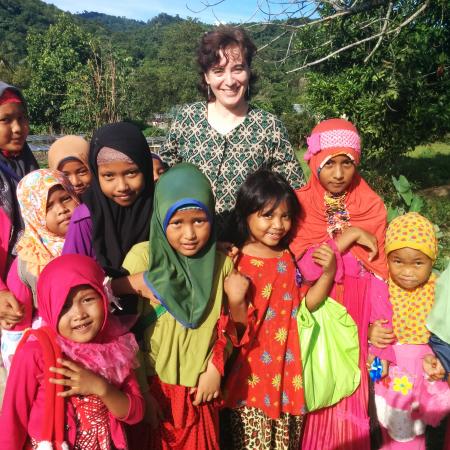
In 1993, Dr. Kinari Webb was an undergraduate studying orangutans in one of the most pristine tropical rainforests in Borneo, Gunung Palung National Park. There she encountered not only a threatened natural environment, but also the dire health needs of the local communities. Kinari realized that these two problems were connected.
In order to pay for scarce and expensive healthcare, villagers had no choice but to sneak into the park and illegally cut down trees to sell for small amounts of money. Deforestation and lack of quality healthcare are both life-threatening problems. But when the rainforest thrives, so do humans. An intact rainforest can provide drinking water, guard against flooding, and reduce malaria and waterborne disease. An intact rainforest absorbs pollutants and carbon dioxide, breathing life into surrounding communities. Since human health and the health of the rainforest are so deeply intertwined, Kinari decided that there had to be a way to tackle them together.
After medical school, Kinari and her rainforest biologist husband, Cam Webb, returned to Borneo. Kinari teamed up with Dr. Hotlin Ompusunggu and, together with a team of dedicated Indonesians, they held more than 400 hours of meetings with communities around Gunung Palung National Park. Using a process that Kinari named Radical Listening, these meetings led to a blueprint for healthcare and conservation programs that actually worked in harmony with each other. The fundamental concept of ASRI and Health In Harmony was born.

